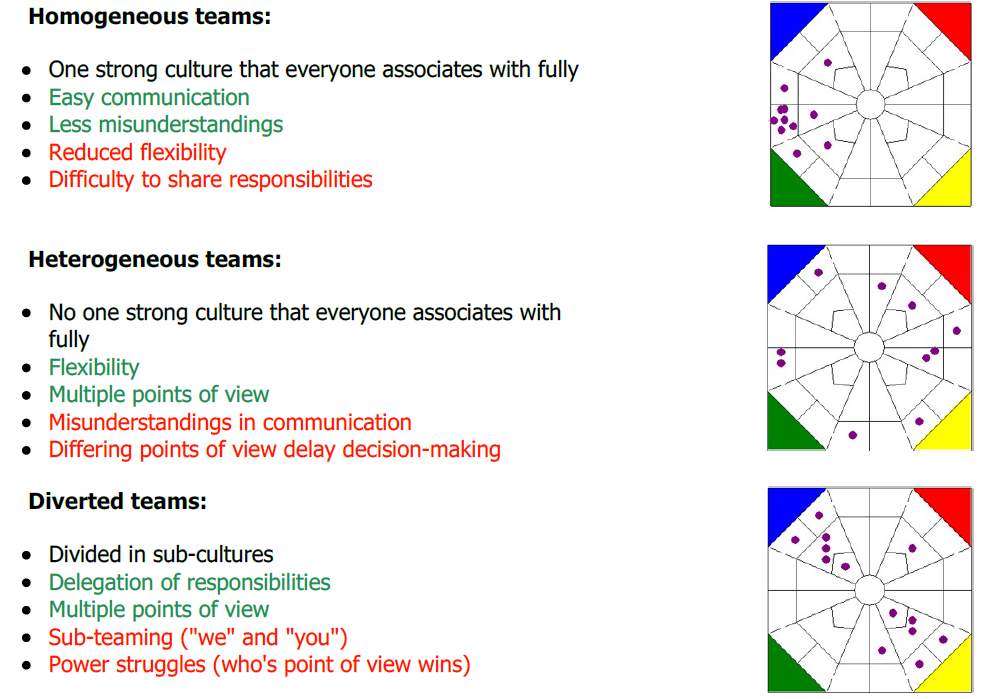Team Culture assessments
Culture is the frame of reference that members of a group have found beneficial for survival in dealing with their particular common environment and have, therefore, retained and transmitted to successive generations.
Culture defines:
How you communicate
What is appropriate and what is not
How you relate to other people
How you approach problems

Culture
Culture, by definition, is something that is born in time. It is based on the experiences, upbuilding and values of its members. Therefore, culture cannot be managed. It is not possible to decide what belongs to our culture and what does not belong.
In organizational environment, a team culture is challenged by multiple “enemies”, like the organizational culture (something that defines how the whole company behaves), other team cultures your team needs to get along with, and, sometimes, the team manager. It is often the case that the team was there before the manager and the manager tries to bring in elements the team culture considers as we don’t do’s.

Extended DISC® Team culture reports answers your critical questions?
- What DISC team culture is your team strongest at?
- What actual behaviours stand out as the strongest behaviors for your team?
- On what aspects is your team heterogeneous and where are the biggest differences between team members?
Developing a team culture requires:
- understanding of each team member
- identifying the strengths of the team culture in its current/future environment
- identifying the challenges of the team culture in its current/future environment
- identifying the development needs
- identifying ways how to make the team culture accept the changes
TEAM CULTURE REPORTS AND YOUR ORGANIZATION
The behavioral profile of team members within your organization (or the organization as a whole) defines to a great extend many aspects of team culture. It plays an important role in how your teams communicates, makes decisions, handles conflicts, shares responsibilities and many other team behavioral aspects.
TEAM TYPES

YOUR TEAM DISC CULTURE
The more team members have similar behavioral traits, the more the team culture reflects the preferences of those team members. Before focusing on your team DISC culture, pay attention to your team type. Interpretation of your team culture depends very much on the team type.
Image below describes the typical aspects of D,I,S & C Team Culture types.




